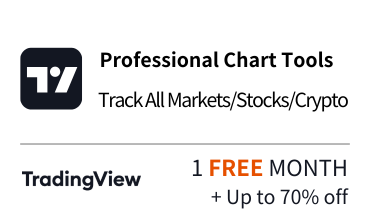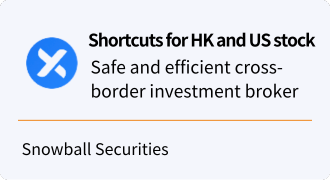A Comprehensive Guide to TSX and TSXV Exchanges - Exploring the Canadian Stock Market
[DISCLAIMER] This article is for educational and informational purposes only and does not constitute investment advice. Readers should consult with qualified financial professionals before making any investment decisions.
As someone with many years of experience and a love for investing, I'm often asked by readers, “Besides investing in U.S. and Hong Kong stocks, is the Canadian stock market worth looking at?” The answer is yes! As the ninth largest stock market in the world, the Canadian stock market not only has a unique advantage in resource stocks, but also harbors many unique investment opportunities. Today let me take you in-depth understanding of Canada's two major exchanges, to see what they really have the charm.
I. TSX Vs TSXV: The Two Exchanges Fully Analyzed
First of all, let's talk about the “pedigree” of these two brothers. The Toronto Stock Exchange (TSX) is Canada's “Wall Street”, similar to the New York Stock Exchange in the U.S., and is Canada's most important securities trading platform. The TSX Venture Exchange (TSXV), on the other hand, is more like the NASDAQ in the United States, focusing on small and medium-sized growth companies.

1.1. Difference in Market Capitalization Size
- TSX: over 1,500 listed companies
- TSXV: over 1,600 listed companies
1.2. Listing Threshold Comparison
TSX requires a company to have a stable financial track record and a proven business model, usually requiring:
- Net worth of at least C$4 million
- Proof of operating history
- Record of profitability or sufficient cash flow
TSXV is more friendly to startups:
- Minimum net worth of C$500,000
- Fewer operating history requirements
- More emphasis on growth potential
Sectoral Distribution of the Canadian Stock Market: The Kingdom of Resource Stocks
This is the most unique feature of the Canadian stock market - the weighting of resource stocks far exceeds that of other countries. the TSX market capitalization distribution is characterized by the following:
- Energy stocks (about 20%): oil and gas giants such as Suncor Energy and Canadian Natural Resources.
- Financials (~30%): Big 5 banks RBC, TD, BMO, CIBC, Scotiabank
- Mining stocks (~15%): gold giant Barrick Gold, mining leader Teck Resources
- Tech stocks (~10%): Shopify, Constellation Software and other Canadian tech stars
In contrast, TSXV is more concentrated:
- Junior mining exploration companies (~40%)
- Tech startups (~25%)
- Biotech startups (~15%)
Ⅲ. Canadian Stock Market Vs U.S. Stock Market Vs Hong Kong Stock Market: What's Unique?
3.1. Comparison with U.S. Stocks: Resource Oriented vs. Technology Centered
- Industry structure: Canadian stocks are resource and financial oriented, while U.S. stocks are technology and consumer oriented
- Market volatility: Canadian stocks are highly correlated to commodity prices, while U.S. stocks are more affected by global technology trends.
- Dividend yield: Canadian bank stocks have an average dividend yield of 4-5%, which is higher than that of large U.S. banks.
- Tax advantage: Canadian investors enjoy dividend tax credits, non-resident investors only need to pay 15-25% withholding tax
3.2. Comparison with Hong Kong Stocks: North American stability vs Asian vigor
Regulatory environment: Canada has stricter regulations and higher standards of corporate governance.
- Liquidity: average daily turnover of Canadian stocks is about C$5 billion, lower than the activity of Hong Kong stocks
- Currency risk: Canadian dollar is highly linked to the US dollar, Hong Kong dollar is directly pegged to the US dollar
- Investment convenience: Canadian market is more open to international investors.
Ⅳ. three major misconceptions about investing in the Canadian stock market
- “Only resource stocks are worth investing in” - Wrong! Canadian technology stocks such as Shopify have performed amazingly well in recent years, and there are also solid opportunities in the healthcare and consumer goods sectors.
- “The market is too small to pay attention to” - Although the size is not as large as the U.S. stock market, the Canadian market has sufficient liquidity, especially large-cap blue chips.
- “Exchange rate risk is too great” - In reality, the Canadian dollar, as a commodity currency, moves in the same direction as resource prices and can serve as a natural hedge for portfolios.
V. Canadian stock market outlook to 2025: opportunities and challenges
Based on the latest economic data, the Bank of Canada maintains a relatively sound monetary policy, which is conducive to stock market performance. Below are the key points to watch:
- Energy transition: the transition from traditional energy to clean energy brings new investment opportunities
- Artificial Intelligence: Toronto as an AI R&D center, related technology stocks have great potential
- Real estate recovery: REITs may usher in an investment window after interest rates stabilize
- Resource cycle: focus on the global economic recovery driven by commodity demand
VI. How to enter the Canadian stock market for novice investors?
- Start with ETFs: e.g. XIU (tracking TSX60) is a low-cost entry option
- Focus on leading bank stocks: stable income and attractive dividends
- Moderate allocation to resource stocks: gold stocks can be used as a hedging tool
- Utilize fixed investment strategy: avoid the trouble of timing, and spread the cost
Ⅶ. Conclusion: Finding Your Canadian Investment Strategy
Under the shadow of the U.S.-China tariff war, the Canadian stock market, as an important part of the North American market, is showing unique investment value. Especially at a time when the global trade landscape is being reshaped, Canada has become an ideal choice for international investors to diversify their risks thanks to its rich natural resources, robust banking system and relatively independent regulatory environment.
In the face of potential U.S. tariff threats, the resource and energy sectors of the Canadian stock market may be affected by short-term volatility, but this also creates opportunities for savvy investors to lay low. Over the long term, Canada's strong economic ties to the U.S., the protections of the USMCA trade agreement, and its strong commodity exporting capabilities put it in a good position to reorganize global supply chains.
Remember, the key to successful investing is not in chasing the favorites, but in understanding the characteristics of the market and developing a strategy that works for you. If you're interested in the workings of the Canadian financial markets, in the next article I'll break down the Canadian financial regulatory system to help you better understand the rules of the game in this market.
What are your thoughts on the Canadian stock market? Are you already investing in Canadian stocks? Feel free to share your experience in the comments section, and I'll respond to every message!







